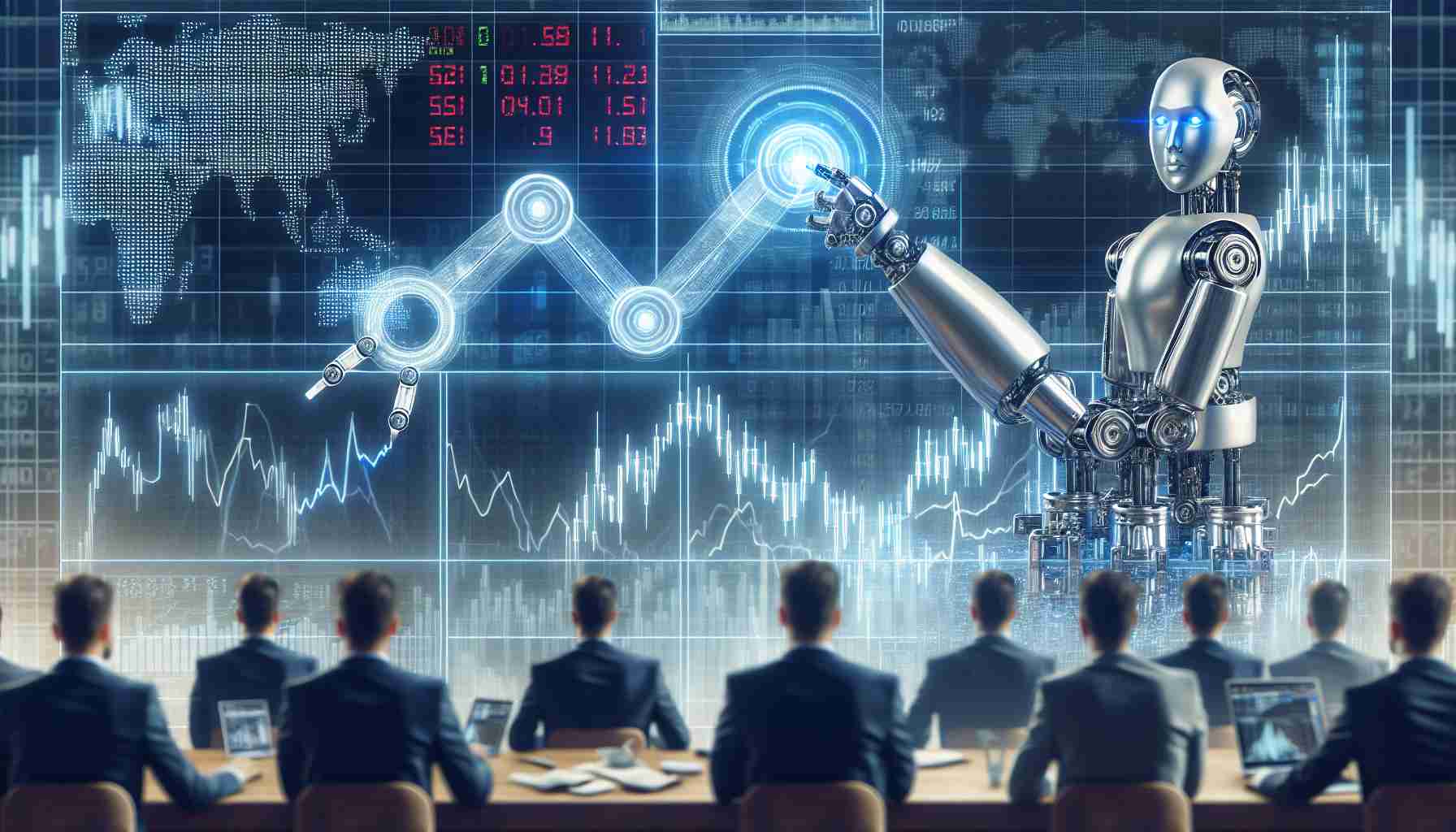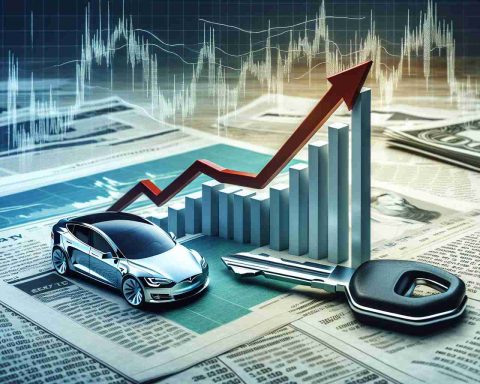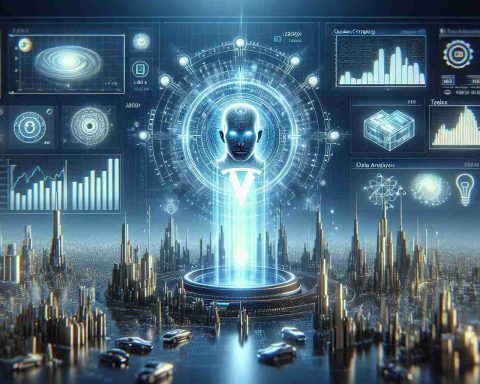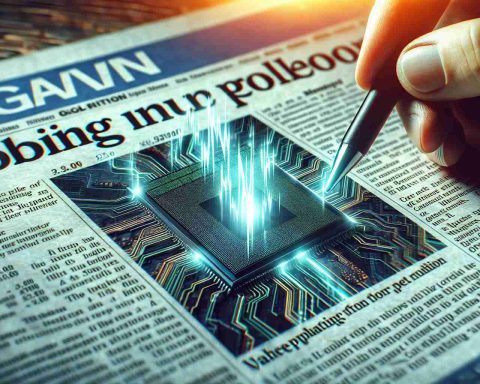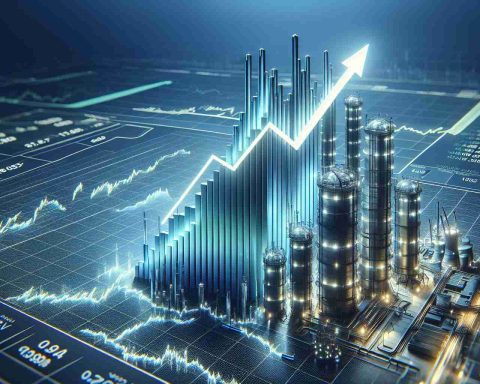In today’s rapidly evolving financial landscape, artificial intelligence is transforming the way stocks are traded. With machine learning algorithms now capable of predicting market trends with unprecedented accuracy, investors are seeing AI not just as a tool, but as a key player in modern finance.
Traditionally, human intuition and experience have guided stock trading decisions. However, recent advancements in AI technologies are challenging this norm, offering solutions that can analyze vast datasets in real time, and react within milliseconds. Firms like BlackRock and Renaissance Technologies have already integrated AI-driven strategies, leading to higher returns and enhanced risk management.
Moreover, AI’s predictive prowess is opening new avenues for retail investors through platforms like Robinhood and eToro. These platforms are leveraging AI to personalize trading strategies, making the stock market more accessible to everyday traders. The result is a democratization of stock market insights, traditionally reserved for experts.
Yet, this shift raises questions about the future of human traders. Will the role of human expertise diminish as algorithms take control? While AI brings efficiency and speed, it lacks the emotional intelligence and empathy that are vital in understanding market sentiment.
As we look to the future, the blend of AI and human insight may redefine success in stock trading. Embracing this synergy rather than fearing obsolescence could be the key to staying ahead in the ever-changing market dynamics.
The AI Revolution in Stock Trading: Implications for the Environment and Humanity’s Future
The infusion of artificial intelligence into stock trading is a groundbreaking shift that carries wide-ranging implications beyond the financial markets. As AI-driven strategies become the norm, the ripple effects touch various aspects of our existence, including the environment, societal structures, and the economy at large.
One critical area where AI’s involvement in stock trading affects the environment is through its impact on resource consumption and carbon footprint. Traditional trading often relied heavily on robust physical infrastructures, like trading floors and analysis centers, consuming significant energy resources. With AI, much of this is digitized, reducing the necessity for physical presence and potentially lowering the energy footprint of financial operations.
Moreover, AI algorithms are inherently better at optimizing operations, and this efficiency can be translated into greener trading practices. Algorithms can potentially prioritize sustainable investments by identifying eco-friendly companies and trends within the stock market, fostering an increase in environmentally responsible business practices. This shift in investment focus could drive companies to enhance their sustainability initiatives, contributing to the global effort in combating climate change.
On a human level, AI’s democratization of stock market insights has profound implications. By making stock trading more accessible through user-friendly platforms like Robinhood and eToro, AI empowers a broader segment of the population to participate in financial markets. This could lead to a more equitable distribution of wealth and knowledge, changing socioeconomic landscapes. However, it also raises the specter of increased market volatility due to a potentially lesser informed or more reactionary new breed of traders engaging in financial markets.
From an economic perspective, as AI continues to perfect its market prediction capabilities, it may alter traditional economic theories and strategies. The potential displacement of human traders also poses questions about employment shifts in financial sectors. While jobs that rely on pattern recognition and data analysis might decline, new roles in AI maintenance, ethics regulation, and cybersecurity could emerge, demanding a reskilling of the workforce.
Looking toward the future, the integration of AI into stock trading could signify an evolution in human cognition collaboratives. The challenge ahead lies in creating a symbiotic relationship between human intuition and machine efficiency. This blend could foster a new financial ecosystem that not only maximizes profitability but also adheres to ethical standards and environmental responsibilities.
In conclusion, as AI becomes a ubiquitous presence in stock trading, its influence extends far beyond the financial realm into the very fabric of society and the environment. Embracing this transformation with a focus on sustainability and societal impact could pave the way for a balanced future, fostering both economic growth and environmental stewardship. This newly charted course could ultimately redefine how humanity perceives and engages with wealth, technology, and the planet.
Unlocking AI-Driven Stock Trading: Trends and Innovations Defining the Future
In the evolving arena of stock trading, the intrusion of artificial intelligence is reshaping strategies, decision-making processes, and ultimately, the future landscape of financial markets. Notably, the integration of machine learning and AI technologies is setting new standards and creating diverse opportunities that were once unimaginable.
Trends in AI-Powered Stock Trading
One of the most significant trends is the emergence of AI-driven autonomous trading systems. These systems are capable of executing high-frequency trades with precision and speed that human traders cannot match. Additionally, AI is being applied in quantitative analysis, offering predictions that adjust dynamically to real-time market shifts, thus providing more accurate forecasts than traditional models.
Innovations and Tools
AI’s predictive capabilities are further enhanced by neural networks and natural language processing, which analyze news sentiments and social media trends to gauge market sentiments. This innovation is particularly transformative in identifying lucrative opportunities and mitigating risks within volatile markets.
Moreover, the continuous advancements in computing power and data storage are making it possible to harness vast amounts of financial data, leading to more refined and comprehensive trading strategies. Companies are deploying sophisticated AI algorithms that can simulate numerous scenarios to predict future stock performance, ultimately helping in robust decision-making.
Pros and Cons of AI in Stock Trading
Pros:
– Precision and Speed: AI can process and analyze data exponentially faster than humans, leading to quicker, more informed decisions.
– Data-Driven Insights: The ability to analyze massive datasets leads to more accurate market predictions.
– Accessibility: Platforms like Robinhood and eToro use AI to tailor strategies, democratizing access to sophisticated trading insights.
Cons:
– Lack of Emotional Understanding: AI lacks the emotional intelligence required to interpret market sentiments fully.
– Potential Over-reliance: Excessive dependency on AI might mean overlooking human intuition and experience, crucial in navigating unconventional market conditions.
Predictions and Future Implications
As AI technologies continue to evolve, they are expected to play an even more integral role in shaping financial strategies. A hybrid approach, combining AI’s speed and data processing capabilities with human strategic oversight, is projected to be the hallmark of successful trading strategies. This collaborative synergy can tap into the best of both worlds, maximizing performance while mitigating potential risks.
Furthermore, regulatory bodies are beginning to scrutinize AI’s role in trading, ensuring ethical practices are maintained and minimizing systemic risks. The industry is predicted to grow rapidly, with AI-driven investment approaches becoming a standard in the financial markets.
For more insights into financial technologies and AI applications, visit BlackRock or Renaissance Technologies.
In conclusion, as AI continues to permeate the financial market, it brings the promise of greater efficiency and accessibility. Engaging with these technologies thoughtfully will ensure investors can leverage the full potential of AI, while navigating the challenges posed by this new era of trading.

